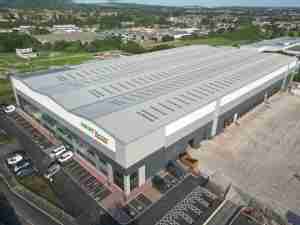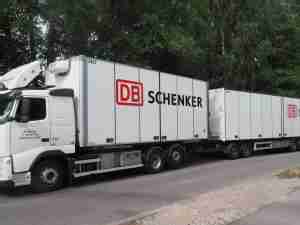International Freight Week, which takes place from 23-25 November 2008 at the Abu Dhabi National Exhibition Centre, is the Middle East's only dedicated event for the entire transport and logistics industry. 'The region has seen tremendous import and export growth over the past decade - according to the IMF, the UAE's import bill alone was set to reach US$149.1 billion by the end of 2007 with exports totaling US$171.3 billion,' said Sarah Woodbridge, Exhibition Director at IIR Middle East, organizers of the event. 'The UAE, served by over 170 shipping lanes and more than 100 airlines, operates an open market with no exchange controls, quotas or trade barriers, making it a highly attractive trade region.'
International Freight Week launches as intermodal activity in the area reaches new highs. 'While it is clear that other regions around the world have been experiencing slow or even stagnant growth over the last year or so, Abu Dhabi, and to some extent the wider region, is expected to realize an over 30% year-on-year growth in cargo freight by the close of 2008,' said Peter Hoslin, Marketing Manager, Abu Dhabi Airports Company. 'This is a rate that many in the industry believe could last for at least the next five years or so.'
'Among the many developments that Abu Dhabi International Airport has seen this year and is undertaking to achieve over the coming years, is the target of handling two million tons of cargo - when the Mid-Field Terminal opens in three years,' he added. 'Of course, the facilities that will support this exponential growth will be intrinsically linked with the growth of the cargo requirements of the national airline, Etihad Airways, although this will continue to be supported by an ever-increasing amount of freight handling from other airlines as well.'
Abu Dhabi's US$10 billion Khalifa Port and Industrial Zone development includes a multi-purpose port which will be able to accommodate up to 2m teu in its first stage. Designed to totally replace the existing port Mina Zayed by 2012, Khalifa Port will create a gateway for the import of all cargo into Abu Dhabi and the export of goods manufactured in the adjacent free zone industrial areas which will cater for multiple sectors including shipyards and trade and logistics. Abu Dhabi is also planning a port for the industrial township of Musaffah, which could be operating as early as 2009.
Major investment is also taking place elsewhere in the region, with ProLogis, the world's largest owner, manager and developer of distribution facilities, announcing the formation of a joint venture with Arcapita, a Bahrain-based investment company, to develop and acquire advanced logistics warehouse space in the Middle East. Known as ProLogis Middle East, the equal partnership expects to create a US$1 billion portfolio in Saudi Arabia, The UAE, Qatar, Bahrain, Kuwait and Oman.
'We believe local and multinational companies will increasingly demand modern distribution centers to serve the region's growing needs,' said ProLogis CEO Jeff Schwartz. 'Further expansion into the GCC region would be consistent with our core business strategy, and over time, we estimate that the Middle East could represent up to US$300 million to US$400 million of annual development.'
International Freight Week will cover every aspect of the industry, including Road Haulage, Warehousing, Rail Freight, Air Cargo, Container & Reefer Manufacture, Ports & Shippi









